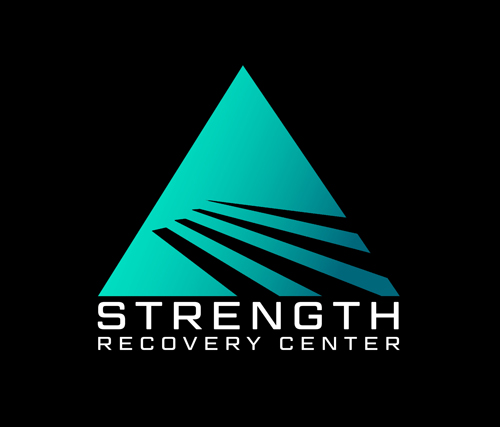Overview of Structured Outpatient Treatment in MA
Structured outpatient treatment in Massachusetts plays a crucial role in the continuum of care for individuals battling addiction. This form of treatment provides a flexible yet effective alternative to inpatient programs, allowing individuals to receive comprehensive care while maintaining their daily responsibilities. Unlike inpatient treatment, structured outpatient programs in MA enable participants to live at home, attend work or school, and engage in their usual activities, all while receiving the support they need to overcome addiction. This model is particularly beneficial for those who have completed detox or inpatient treatment and are transitioning back to everyday life.
Strength Recovery Center in Weymouth, MA, is a leading provider of structured outpatient treatment. They offer a range of programs, including Full Day Addiction Treatment, also known as PHP, and Half Day Addiction Treatment, referred to as IOP by insurance providers in Massachusetts. These programs are designed to meet the diverse needs of individuals at different stages of their recovery journey. The center emphasizes a modern approach that incorporates Medication-Assisted Treatment (MAT) therapies, which have been proven effective in helping individuals achieve and maintain sobriety.
Structured outpatient treatment in Massachusetts is not limited to addiction recovery. It also addresses co-occurring mental health disorders, providing a holistic approach to healing. This dual focus ensures that individuals receive comprehensive care that addresses both their physical and mental health needs. With the support of experienced professionals, participants in these programs can develop the skills and strategies necessary to achieve long-term recovery and improve their overall quality of life.
Key Components of Outpatient Programs in MA
Outpatient programs in Massachusetts are characterized by several key components that contribute to their effectiveness. One of the primary elements is the individualized treatment plan, which is tailored to meet the specific needs and goals of each participant. This personalized approach ensures that individuals receive the most appropriate care for their unique circumstances, increasing the likelihood of successful outcomes. Treatment plans typically include a combination of therapies, counseling sessions, and support groups, all designed to address the root causes of addiction and promote lasting recovery.
Another critical component of structured outpatient treatment in MA is the emphasis on evidence-based therapies. At Strength Recovery Center in Weymouth, MA, clients benefit from a range of therapeutic modalities, including Cognitive Behavioral Therapy (CBT), Dialectical Behavior Therapy (DBT), and Motivational Interviewing. These approaches are supported by research and have been shown to be effective in treating addiction and co-occurring mental health disorders. By incorporating these therapies into their programs, outpatient centers in Massachusetts provide participants with the tools they need to manage their symptoms and reduce the risk of relapse.
Support and accountability are also integral to the success of outpatient programs in Massachusetts. Participants are encouraged to engage in group therapy sessions, where they can share their experiences and learn from others facing similar challenges. This sense of community fosters a supportive environment that promotes healing and personal growth. Additionally, regular progress assessments and ongoing communication with treatment providers help ensure that individuals remain on track with their recovery goals and receive the necessary support to navigate any obstacles they may encounter.
Benefits of Structured Outpatient Care
Structured outpatient care in Massachusetts offers numerous benefits for individuals seeking recovery from addiction. One of the most significant advantages is the flexibility it provides, allowing participants to maintain their daily commitments while receiving treatment. This flexibility is particularly beneficial for those with work, school, or family obligations, as it enables them to continue fulfilling their responsibilities while working towards sobriety. By integrating treatment into their daily lives, individuals can apply the skills and strategies they learn in real-world settings, enhancing their ability to achieve lasting recovery.
Another benefit of structured outpatient care in MA is the focus on individualized treatment. Programs like those offered at Strength Recovery Center in Weymouth, MA, are designed to address the unique needs and goals of each participant. This personalized approach ensures that individuals receive the most appropriate care for their specific circumstances, increasing the likelihood of successful outcomes. By tailoring treatment plans to meet the needs of each individual, outpatient programs can effectively address the root causes of addiction and promote long-term recovery.
Structured outpatient care in Massachusetts also provides a supportive and collaborative environment that fosters healing and personal growth. Participants have access to a network of peers and professionals who understand the challenges of addiction and are committed to helping them succeed. This sense of community and accountability is crucial for maintaining motivation and preventing relapse. Additionally, the integration of evidence-based therapies and holistic practices ensures that individuals receive comprehensive care that addresses both their physical and mental health needs, promoting overall well-being and a higher quality of life.
Eligibility Criteria for MA Residents
Eligibility for structured outpatient treatment in Massachusetts is determined by several factors, ensuring that individuals receive the most appropriate level of care for their needs. Generally, candidates for outpatient programs have already completed detoxification or inpatient treatment and are stable enough to participate in a less intensive level of care. This stability is crucial, as outpatient programs require individuals to manage their recovery while navigating the challenges of daily life. Assessment by a qualified professional is typically required to determine whether outpatient treatment is suitable for a particular individual.
Strength Recovery Center in Weymouth, MA, offers structured outpatient treatment to residents of Massachusetts who meet specific criteria. These criteria may include a diagnosis of substance use disorder, a willingness to engage in treatment, and the ability to participate in scheduled therapy sessions and activities. The center’s team of experienced professionals conducts thorough assessments to ensure that each participant is matched with the most appropriate program for their needs. This careful evaluation process helps maximize the likelihood of successful outcomes and long-term recovery.
In addition to clinical criteria, logistical considerations may also influence eligibility for structured outpatient treatment in MA. For example, individuals must have reliable transportation to attend therapy sessions and other program activities. They must also have a stable and supportive living environment that is conducive to recovery. These factors are essential for ensuring that participants can fully engage in their treatment and apply the skills and strategies they learn in their everyday lives. By addressing both clinical and logistical considerations, outpatient programs in Massachusetts provide a comprehensive approach to addiction recovery that supports individuals in achieving lasting sobriety.
Types of Therapies Offered in MA
Structured outpatient treatment programs in Massachusetts offer a diverse range of therapies designed to address the complex needs of individuals in recovery. One of the most commonly used therapeutic approaches is Cognitive Behavioral Therapy (CBT), which focuses on identifying and changing negative thought patterns and behaviors that contribute to addiction. CBT helps individuals develop healthier coping strategies, improve emotional regulation, and build resilience, making it an essential component of many outpatient programs in MA.
Dialectical Behavior Therapy (DBT) is another evidence-based therapy frequently offered in structured outpatient programs in Massachusetts. Originally developed to treat borderline personality disorder, DBT has proven effective in addressing substance use disorders and co-occurring mental health conditions. This therapy emphasizes mindfulness, emotional regulation, distress tolerance, and interpersonal effectiveness, providing individuals with valuable skills to manage their emotions and navigate challenging situations. By incorporating DBT into their treatment plans, programs like Strength Recovery Center in Weymouth, MA, help participants achieve greater emotional stability and improve their overall well-being.
In addition to CBT and DBT, structured outpatient treatment programs in Massachusetts often include Motivational Interviewing and trauma-informed care. Motivational Interviewing is a client-centered approach that enhances motivation and commitment to change by exploring and resolving ambivalence. This therapy is particularly effective for individuals who may be hesitant or uncertain about their recovery journey. Trauma-informed care, on the other hand, recognizes the impact of past trauma on an individual’s mental health and substance use. By acknowledging and addressing these experiences, outpatient programs in MA provide a safe and supportive environment for healing and growth.
How to Choose the Right Addiction Treatment Program in MA
Choosing the right structured outpatient treatment program in Massachusetts is a critical step in the recovery journey. One of the first considerations is the level of care offered by the program. Individuals should assess their current needs and determine whether they require Full Day Addiction Treatment (PHP), Half Day Addiction Treatment (IOP), or a less intensive outpatient program. Programs like those at Strength Recovery Center in Weymouth, MA, offer a range of options to accommodate different levels of need, ensuring that individuals receive the most appropriate care for their circumstances.
Another important factor to consider when selecting a structured outpatient treatment program in MA is the range of therapies and services offered. It is essential to choose a program that provides evidence-based therapies, such as Cognitive Behavioral Therapy (CBT) and Dialectical Behavior Therapy (DBT), as well as holistic practices that support overall well-being. Additionally, individuals should inquire about the availability of support for co-occurring mental health disorders, as addressing these conditions is crucial for achieving long-term recovery. By selecting a program that offers comprehensive care, individuals can maximize their chances of success.
The reputation and experience of the treatment center and its staff are also important considerations when choosing a structured outpatient program in Massachusetts. Prospective participants should research the center’s credentials, read reviews from former clients, and inquire about the qualifications of the clinical team. A reputable center like Strength Recovery Center in Weymouth, MA, will have a team of experienced professionals dedicated to providing high-quality care and support. By taking the time to evaluate these factors, individuals can make informed decisions and select a program that aligns with their recovery goals.
Insurance and Payment Options in MA
Navigating insurance and payment options is an important aspect of accessing structured outpatient treatment in Massachusetts. Many outpatient programs, including those at Strength Recovery Center in Weymouth, MA, accept a variety of insurance plans, making it more accessible for individuals to receive the care they need. It is crucial for prospective participants to verify their insurance coverage and understand the benefits available for addiction treatment. This may involve contacting their insurance provider to inquire about coverage for Full Day Addiction Treatment (PHP), Half Day Addiction Treatment (IOP), and other outpatient services.
In addition to insurance coverage, some structured outpatient programs in Massachusetts offer sliding scale fees or payment plans to accommodate individuals with varying financial situations. These options can help reduce the financial burden of treatment and make it more affordable for those without comprehensive insurance coverage. It is advisable for individuals to discuss their financial situation with the treatment center and explore available payment options to ensure they can access the necessary care without undue stress.
For those without insurance or limited coverage, there may be additional resources and assistance available in Massachusetts to help offset the cost of structured outpatient treatment. State-funded programs and grants may provide financial support for individuals seeking addiction treatment. It is important for individuals to research these resources and determine their eligibility for assistance. By exploring all available options, individuals can find a structured outpatient program in MA that fits their financial situation and supports their recovery journey.
Success Stories and Case Studies in MA
While individual success stories and case studies are not detailed here, many individuals in Massachusetts have experienced significant positive outcomes through structured outpatient treatment. Programs like those at Strength Recovery Center in Weymouth, MA, have helped countless individuals achieve and maintain sobriety, demonstrating the effectiveness of this treatment approach. Participants often report improved mental health, stronger relationships, and a greater sense of purpose and fulfillment in their lives as a result of their treatment.
The success of structured outpatient treatment in Massachusetts can be attributed to the combination of personalized care, evidence-based therapies, and a supportive community. By addressing the root causes of addiction and providing individuals with the tools they need to manage their recovery, these programs empower participants to make lasting changes. The integration of therapies like Cognitive Behavioral Therapy (CBT) and Dialectical Behavior Therapy (DBT) further enhances the effectiveness of treatment, helping individuals develop healthier coping strategies and improve emotional regulation.
Individuals who have completed structured outpatient programs in Massachusetts often express gratitude for the support and guidance they received during their recovery journey. The collaborative efforts of experienced professionals and peers create a nurturing environment that fosters healing and growth. For those seeking recovery from addiction, structured outpatient treatment in MA offers a path to a healthier, more fulfilling life. To learn more about the programs available and begin your journey to recovery, contact Strength Recovery Center in Weymouth, MA, today.




